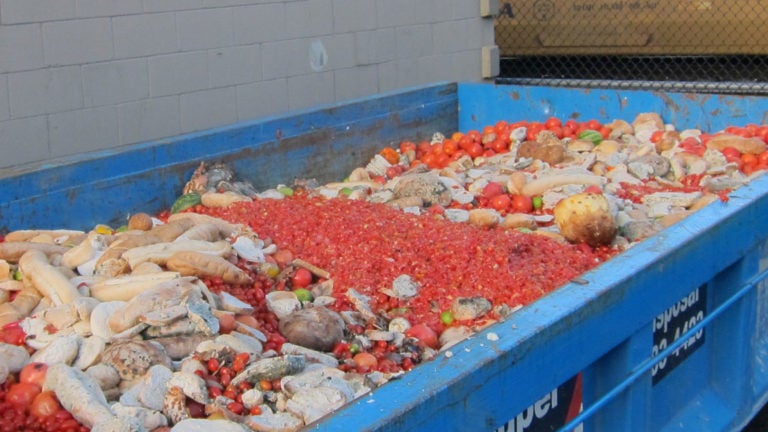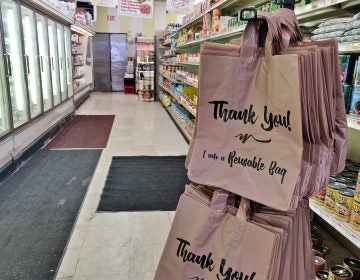Measure advances to require N.J. hospitals, prisons to recycle food waste
But in a rare public dispute, Senate Democrats disagree over aspects of the bill

Sen. Paul Sarlo proposed to amend the food waste bill, arguing the legislation is not “practical.’’ Stephen Rees from Flickr (CC BY-NC-ND 2.0)
This article originally appeared on NJ Spotlight.
–
By a narrow vote, the Senate yesterday gave final legislative approval to a bill that would require large generators of food waste, such as hospitals, prisons, restaurants and supermarkets, to recycle their trash instead of sending it to landfills, or, in most cases, incinerators.
The bill (A-2371) was approved the same day as the Senate also passing, by 22-14, a much-debated measure (S-864) to prohibit single-use plastic bags and paper carry-out bags — like the food waste bill, long a top priority of environmental organizations in New Jersey. The plastics bill still needs to be approved by the Assembly, where its prospects are a bit murky.
Each of the issues have defied reaching a consensus among lawmakers. Both measures died in the lame-duck legislative session earlier this year despite gaining some traction in either the Assembly or Senate, only to falter because neither house could agree with the other’s version.
Nevertheless, the movement on both bills marked a victory for proponents given the opposition the proposals faced in previous sessions, not only from industry lobbyists, but from lawmakers themselves.
That surfaced yesterday in the Senate in a rare public dispute among fellow Democrats over the food waste bill with Sen. Paul Sarlo (D-Bergen) proposing to amend the measure, arguing the legislation is not “practical.’’
Sarlo: It would increase costs
Sarlo contended the bill will increase costs to institutions and public entities by requiring them to send their trash, potentially over large distances, to be recycled in so-called food digesters, instead of landfills. Many landfills have built methane collection systems to capture gas from food waste in garbage dumps, and convert it into electricity.
“This bill will destroy those systems,’’ Sarlo said in offering amendments to the bill to conform to what was agreed to in the prior legislative session. That bill, however, was conditionally vetoed by Gov. Phil Murphy, who faulted the idea of sending waste to garbage incinerators.
Under the current bill, facilities would be prohibited from sending food waste to a licensed incinerator or landfill only if they could demonstrate economic hardship.
Sen. Bob Smith (D-Middlesex), the sponsor of the bill, said that only 15% of food waste would end up in landfills, the third largest source of methane emissions in the world. “We have to do everything we can to turn around climate change,’’ said Smith, adding methane is more than 80 times more potent than carbon dioxide, the most prevalent greenhouse gas emission causing climate change.
Concerns about location
Other Democratic senators, however, expressed concerns that these food digesters would be built in urban areas already overburdened with pollution facilities, otherwise known as environmental justice communities.
Senate President Steve Sweeney (D-Gloucester) sought to blunt those concerns by vowing to back a bill (S-232) now pending in the Senate that gives environmental justice communities more ability to fight unwanted projects that increase pollution in those communities. Ultimately, the bill only won approval by a 22-17 vote.
Environmentalists were happy to see the bill passed. “It’s the first to try to deal with the food waste issue,’’ said Jeff Tittel, director of the New Jersey Sierra Club. “We currently waste about 40 percent of our food waste every year. This bill will help get food waste out of landfills and reduce methane emissions.’’
WHYY is your source for fact-based, in-depth journalism and information. As a nonprofit organization, we rely on financial support from readers like you. Please give today.



